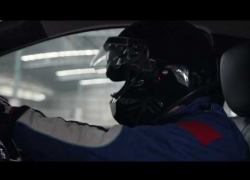Last year my wife was pulled over for making an illegal turn. She had forgotten her license in the other car. Being a foreigner, the enforcer was asking for an outrageous amount. So she called me and gave the phone to him. I asked him what the problem was and he said that she doesn’t have a license. I explained that she does indeed have a valid drivers license but that she failed to carry it, which carries a fine of 1,000 pesos, and asked him to kindly write her the appropriate ticket
He said he couldn’t because he needs to confiscate the license first.
You can imagine the awkward silence that followed. I tried pointing out the painfully obvious, but I could almost see the buffering symbol spinning on his forehead. He just couldn’t wrap his head around it. He insisted that the penalty for failing to carry a drivers license included confiscation of drivers license. Yes, you read that correctly.
Rather than try and explain the basics of logic, I told him that under Republic Act 4136, only the LTO can confiscate a license. He insisted that the Makati City government have a Local government code that allows them to confiscate licenses. I had a bit of time to kill so I cited section 62 of Republic Act 4136, that clearly states that “No city council can enforce a resolution or ordinance that is in conflict with the LTO law.”
Yes it was fun at first, but realising how long this game could go on, eventually I told him that the dash camera that we had in the car had recorded the whole situation and conversation so perhaps I should just go down to the precinct and play the whole recording and sort it out there. He wished me a merry Christmas and let my wife drive off.
Now we should have just been happy at that. But it doesn’t solve the problem. Ok, maybe it solves my wife’s, but not the real problem, which is that city governments and village associations are commiting a crime everytime they take your license. So I challenged the Makati City Government to justify this.
In a letter addressed to me, dated last November 21, 2013, the city legal officer pointed out that the local government code of 1991 has given local government units police powers, which is “an inherent authority of government to impose restrictions on private rights for the sake of public welfare, order and security”
The law also empowers LGUs to implement their own traffic management program, hence the enactment of the Makati City Traffic Code of 2003. The code was later amended in 2011 to impose stricter rules and penalties on drunk driving and other violations.
The rest of the letter is nosebleed stuff, but suffice to say that section 62, which clearly states that no city council can enforce a resolution or ordinance that is in conflict with the LTO law was indeed overturned––which is another way of saying, nothing can can supersede this law except for another law that says it can.
So, in a nutshell, to answer to the burning question: according to the local government code of 1991, Makati, and any other city that has amended their ordinances, can indeed confiscate your license. Albeit in violation of a Republic Act. This, however, is not the case for the MMDA and airport police, much less our village security guards or homeowners associations that demand you to surrender your license upon entry.
So as much as I appreciate the clarification (it was all I was asking for to begin with) this sets a dangerous precedent because it encourages a pizza parlor court system––Regional Trial court, Court of Appeals, Supreme court and Super Supreme. Let’s not even get into the Manager’s Special.
I’m not here to argue the law––there are people who are paid a lot more money than I am to do that for me––I am only concerned that these precedents cascade down and the lines get blurred even further, creating all sorts of legal implications and ridiculous confrontations, much like the one we saw in that viral video of the airport police officer that smashed the window of the taxi cab because the driver refused to hand over his license.
Another thing is that RA 4136 clearly states that it is illegal to drive without a license. And failure to carry a license "A crime it does make" So now we have the issue wherein a local government (or airport police officer) will confiscate a license and hand the driver a ticket that 'acts' as a license that is only recognised in the city it was issued. In other words, because each of the 19 cities of Metro Manila have their own local government code, Taguig, as an example, have every right to not recognize the TVR of Makati as a valid license and charge you for failure to carry once you enter their jurisdiction. This is precisely why a Philippine driver's license falls under a Republic Act. Because it's a national license. But hey, what is a Republic Act between friends? Precisely that. An act.



